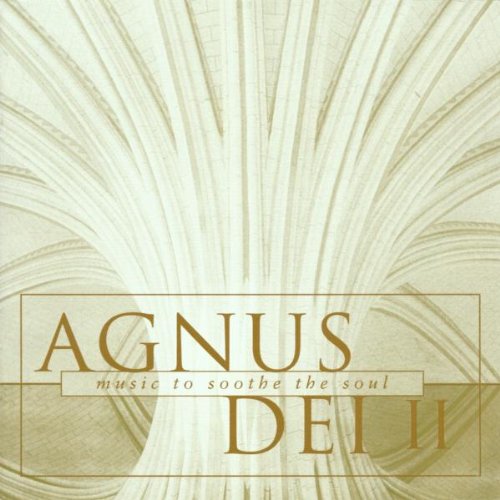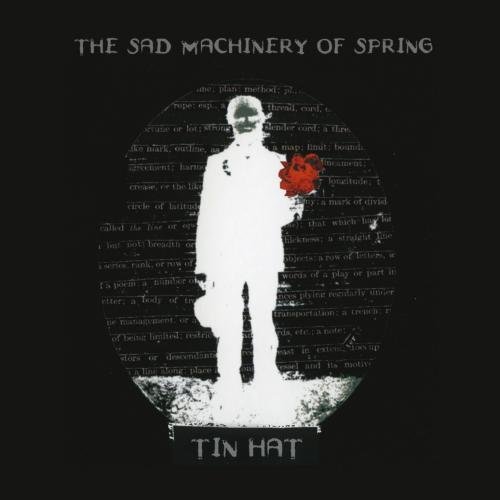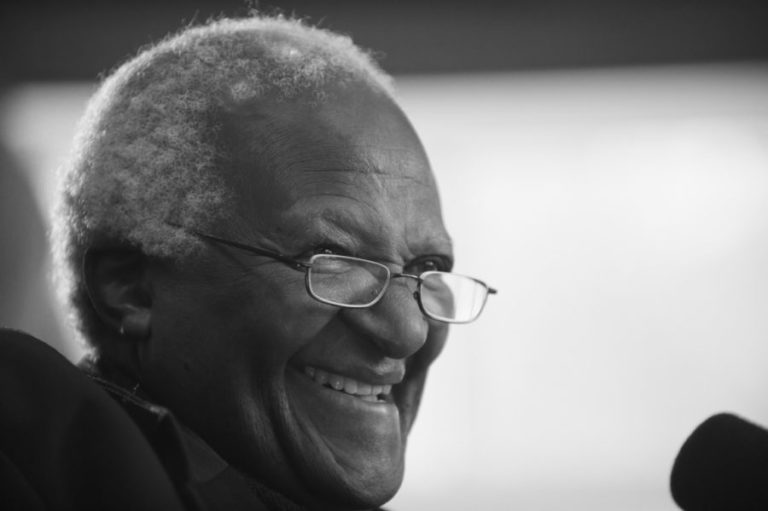Cheryl Blake, Jef Murray, David Dixon, et al.
The Beauty and Challenge of Being Catholic: Hearing the Faithful
We received hundreds of essays in response to our query about what anchors and unsettles our Catholic audience. So we asked some of you to speak about your tradition. The moving reflections we heard prompted us to depart from our usual format and bring you a fabric of voices from the Church itself.
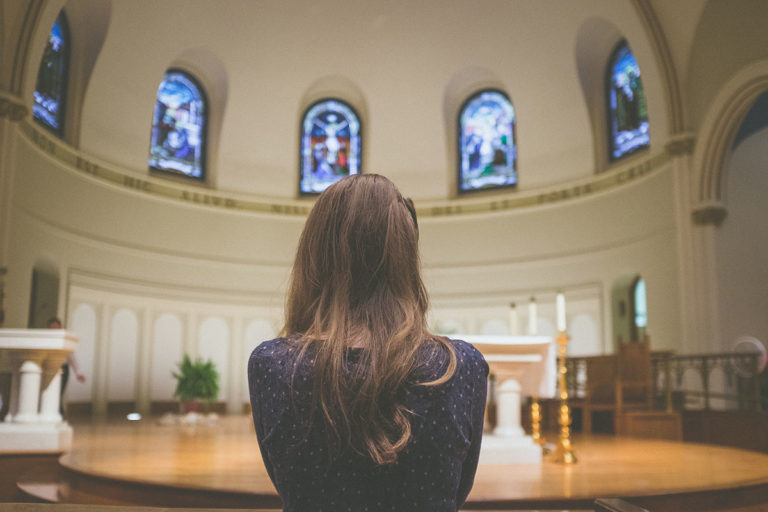
Image by NeONBRAND/Unsplash, Public Domain Dedication (CC0).
Guests
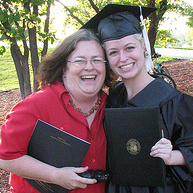
Cheryl Blake
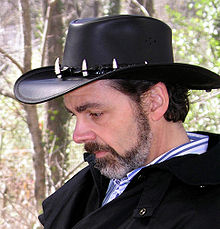
Jef Murray

David Dixon

Imelda Hinojosa
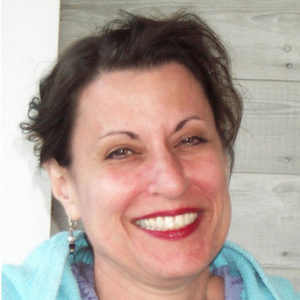
Lorraine Murray
Transcript
May 1, 2008
KRISTA TIPPETT, HOST: I’m Krista Tippett. Today, “The Beauty and Challenge of Being Catholic.” We break format this hour to listen to lay Catholic voices on the force of this vast and ancient tradition on their lives, the way they struggle with it, the sources of their love for it. Even to be a lapsed Catholic, we hear, is a complex state of being.
BONNIE AMESQUITA: I don’t anticipate going back to the Catholic Church, but I will always love what my mother told me the Church was about — justice and love and the courage of intelligence and conscience in the face of conventional wisdom.
OILIBHEAR: The Catholic Church just does have such an amazing grasp on something beautiful about the human being. It’s — it’s the fact that I love it so much that I fight it so much, maybe.
KRISTA TIPPETT: This is Speaking of Faith. Stay with us.
[Announcements]
MS. TIPPETT: I’m Krista Tippett. This hour, a departure from our usual format. After Pope Benedict’s visit to the U.S. was announced, we invited Catholic listeners to reflect on the state of Roman Catholicism as seen through their eyes. We asked them: “What do you take solace in and find beautiful about this faith? What anchors and unsettles you in and beyond current headlines about the Church? What hopes, questions, and concerns are on your mind as you ponder the state of the Church and its future?”
We had planned to interview a theologian for the radio program itself, but we changed course. We were overwhelmed by the hundreds upon hundreds of articulate, reflective responses that came in to our query from many corners of contemporary lay Catholic experience. We called some of them up and asked them to read from and speak about their personal essays. This hour, they lead us through some of the present story of this tradition of 1.1 billion people globally and one-fourth of the U.S. population.
From American Public Media, this is Speaking of Faith, public radio’s conversation about religion, meaning, ethics, and ideas. Today, “The Beauty and Challenge of Being Catholic — Hearing the Faithful.”
[Sound bite of chant]
MR. JEF MURRAY: I’m an artist and so when I find myself looking at the Church, I look at it with love. But I also see it as if it were some wild and mysterious masterpiece that unfolds through the ages.
MS. BONNIE AMESQUITA: I find myself thinking about all of the people who have participated in the Eucharist. It’s overwhelming to feel connected in that way to something so much bigger than myself.
MR. STEVE SKOJEC: The old Mass is a sense of stepping outside of time. So there is something about that that gives us an escape from the constantly changing world.
MS. RACHEL POKORA: The ethics, the morals that it gave me I found so powerful and so beautiful. And I feel like that Church I knew is in danger. And if I leave, who knows what it’s going to look like.
OILIBHEAR: The Catholic Church just does have such an amazing grasp on something beautiful about the human being. It’s — it’s the fact that I love it so much that I fight it so much, maybe.
MS. TIPPETT: This is a dynamic moment in time on many levels for the Roman Catholic Church. And while the Catholics who wrote to us and later spoke to us reflected on specific challenges, they rarely began with the kind of issue-oriented drama that is conveyed in the news. They wrote overwhelmingly of their love for the depths of this religion, especially the meaning they find in the sacraments of the Church and in Catholic tradition’s resonance across time and space. At the same time, the voices you are about to hear, taken together, evoke the vast range of experience that makes up the Roman Catholic present, spanning profound differences in perspective on liturgy, social issues, and the meaning and makeup of the priesthood.
These voices also underscore the fluidity of the very notion of Catholic identity, especially in the West. This has to do in part with the still-unfolding legacy of the Second Vatican Council that met from 1962 to 1965. Pope John XXIII convened that council, he said, quote, “to throw open the windows of the Church, so that we can see out and the people can see in.”
Vatican II began to open up Catholic thought and doctrine, leading to many reforms, including a less hierarchical government, increased roles for the laity, and Masses spoken in native languages rather than intoned in Latin.
Many of the Catholics who wrote to us described the practical effect in their lives of changes wrought and questions opened, as well as questions yet unresolved by Vatican II. The first voice you’ll hear is Cheryl Blake of St. Louis, Missouri.
MS. CHERYL BLAKE: Today is my 57th birthday, and I’m what some people refer to as a cradle Catholic. So I’ve been through almost-silent Masses, meatless Fridays, Latin readings, Communion by mouth only, Latin responses, all the way to vernacular and guitar Masses with home-baked unleavened bread and a shared cup of consecrated wine. I have seen beautiful cathedrals, representations of God’s kingdom on Earth, where wonderful choirs have filled the archways, resounded off the mosaics.
My favorite image, however, of celebrating Catholic Mass is one my father shared with me. He was stationed in the South Pacific during WWII, where accommodations were canvas rather than brick and mortar. He described acting as an altar server for a priest chaplain, who celebrated the Eucharist on what was probably a mess tent table. Here was my shy dad, thousands of miles from home, under threat of air attack, with men he hadn’t known at all just months before, yet he was able to comfortably share in the rites. I find comfort in that same rite, the Eucharist, which makes me at home in some remote town and in this community that is more than the sum of its parts. Thus, I’m assured that my being Catholic makes me Church, with a capital C.
MS. TIPPETT: Imelda Hinojosa lives in Hawthorne, California. She works with animals, and you’ll hear her birds in the background as she speaks. She experienced the transition from pre-Vatican II to post-Vatican II — what changed and what did not — through the eyes of a child; her memories of awe and vulnerability intertwined also shaped the way she has observed the clergy sexual abuse scandal of recent years.
MS. IMELDA HINOJOSA: When I was a child in the ’60s and ’70s attending St. Joseph’s School, it was a different time. Nuns were suddenly allowed to dress in more modern clothing. The Mass changed from Latin to English. Songbooks and missalettes replaced the prayer books we used to carry into Mass, wearing our veils or beanies. Suddenly the Mass was accessible, and we were encouraged to participate in song and word — little guitar groups up at the altar in the ’70s, to the shock of older parish members, regular people giving readings.
Boys were still the lucky ones that got to participate on the altar. I wanted so badly to be that special, to take part in the holiest part of the Mass, helping to prepare the sacrament of communion. I enjoyed the mystery of seeing what was behind the altar in the rooms beyond. As children, we would run when Monsignor Patrick Redahan would patrol the playground, to greet him, hug him, and try to win his Irish smile or laughter. Priests were the closest one to get to God. To have one over to dinner was an honor to the family. To have one to speak to you as a child was an unbelievable thrill. That trust, that open trust, was a precious gift. Parents handed their children over without question to these men of God. The initial crime may have been with the perverted child abuser masquerading as a priest, but the larger unforgivable crime was the huge global presence of the powerful Catholic Church keeping these men hidden, protected and reassigned to other unsuspecting parishes. That was a criminal act.
My parents were in St. Joseph’s parish for over 50 years. I was married in that church. My oldest son was baptized there. The Church has changed over the years, literally the structure and neighborhood. Where in my day I was one of the few brown kids, now the parish is mostly all Latin. On Ash Wednesday this year, they had ashes distributed every hour on the hour in Spanish. What I love about the Catholic Mass is the powerful, spiritual, deep mystery of it all. The saddest thing the Catholic Church did to me, nullified my marriage after a divorce, took away its existence in sacrament. In my heart is was a sacrament even though the marriage ended. How can a church take away something holy? To have had my case reviewed by a Catholic tribunal and judged was simply medieval. And even with all this, when people ask, I am still Catholic.
MS. TIPPETT: The demographic transformation Imelda Hinojosa describes in her childhood church — an exponentially increasing Latino presence — reflects one of the most important shifts in the current U.S. Catholic Church. An estimated one-third of Americans who were raised Catholic have left the Church, more than any other denomination. But the U.S. Church as a whole is growing by way of immigration and conversion. Nearly half of all American Catholics under 40 today are Latino, and 11 percent of all U.S. Catholics are converts from another faith. Jef Murray of Decatur, Georgia, adopted Catholicism as an adult.
MR. JEF MURRAY: I had never stopped believing in God, but I had spent a lot of time playing around with trying to understand who God was. I was raised a nominal Christian, but never really practiced much. And I, you know, learned about Taoism and I learned about — a little bit about Hinduism and I learned Buddhism and played around with Paganism and all kinds of things just exploring, trying to figure out, you know, who this creature was, who this being was that ultimately I owed my existence to. And because I’m an artist, I also think I’ve always had a fairly strong mystical side. And I love churches. I’ve always loved churches since I was a kid. I use to go sit in churches in Rome, Georgia, back when they use to keep churches unlocked, and just sit there, just to be with God. Such questions as what I find beautiful and what concerns me about the Roman Catholic Church somewhat miss the point.
C. S. Lewis once wrote his analogy of a woodshed in which he suggested, after noting, a beam of light coming through a chink in the roof of a darkened woodshed, that one could look at the beam of light or one could look along it. So you could see the beam of light or you could look along it and see the glory of the sky, the sun, and the trees above the woodshed. Lewis used this concept to describe being in love. So if you look at being in love, you can note emotional responses or sociological rituals or hormonal changes. But if you look along the process of being in love, by being in love yourself your whole world changes — the flowers are brighter, the moon is more romantic, the music around you seems more poignant, everything speaks to you of your beloved. And living as a faithful Catholic is like being in love. The Church supports us in this love affair, offering us the sacraments, sacred liturgy, glorious masterpieces of art, Gregorian chants, music, plus thousands of years’ worth of stories of others who lived before us and who also loved Christ and His Church.
I’m an artist, a painter, and so when I find myself looking at the Church, I look at it with love, but I also see it as if it were some wild and mysterious masterpiece that unfolds through the ages. Faithful Catholics are in communion with and part of this glorious, quirky thing called the body of Christ. And we are each called to become, as Mother Teresa once said, “small pencils in the hand of God.”
MS. TIPPETT: Jef Murray’s wife Lorraine grew up Catholic and left the Church as an adult. She came back to this faith of her childhood, in part, as her husband took an interest in its rituals.
MS. LORRAINE MURRAY: Raised Catholic, I left the Church for over 20 years. I became a fervent atheist and feminist, even choosing to end an unwanted pregnancy. This decision caused me many years of grief. When I returned to the Church in my 40s, I found what I had lost during those 20 years, which was meaning, joy, and hope. I also found forgiveness for the abortion, but then later I needed help forgiving myself.
I had a series of little epiphanies, my husband had gone on a business trip to New York City, and he came home and said that he had stopped in St. Patrick’s Cathedral and lit candles in memory of his father and my parents. And my parents had been dead many years at that point, and in that moment I realized that I had never prayed for them, which is part of the Catholic teaching. And that was the first epiphany and the first moment in which I realized that something was happening in my life that was very hard to explain, because my husband was not Catholic and was completely unfamiliar with these teachings. He had just dropped in the Church, quote/unquote, “out of the blue.” One of the moments, too, that called me back was being in the Gulf of Mexico in a small boat and seeing some wild manatees right by the boat. And I was an atheist at that time, but I turned to my husband and said, “It’s like looking into the face of God.” And I still feel everyday when I watch the tulips in my house, in my pot in my window, blooming or I hear the birds, the robins, first thing in the morning, I feel like this is all God’s wondrous majesty.
MS. TIPPETT: I’m Krista Tippett. And this is Speaking of Faith from American Public Media. Today, “The Beauty and Challenge of Being Catholic — Hearing the Faithful.” We’re breaking format in this program, exploring a palette of contemporary Roman Catholic experience through the voices of lay people. They’re reading from and speaking about essays they wrote in response to our call for stories. You can hear their essays in their entirety and read hundreds of others at speakingoffaith.org.
The next two voices are part of what some describe as a groundswell of conservatism in the new generation, young Catholics who are more theologically and liturgically traditional in some cases than their parents or the priests who formed them.
MR. DAVID DIXON: My parents — my mom especially, she was a teenager or right at around 20, when the changes really became effective, and she is really more of a liberal-minded woman, grew up in the ’60s. And she sees me, and sometimes it scares her, because I’m much more traditional than she is.
MS. TIPPETT: David Dixon lives in Altoona, Iowa.
MR. DAVID DIXON: Now, on some of the hot button issues, her and I don’t see eye to eye on. And I think it’s funny that she raised me to be a good Catholic boy, and maybe she worries that I take it too far. I don’t know, she created a monster, maybe.
I grew up literally in the shadow of Holy Family Catholic Church in Mason City, Iowa. Every time I walked out of our home’s back door, the steeple would be in my sight. Everyday I could hear the church bells ringing at noon and on Sundays as a call to Mass. I come from a practicing Catholic family. My father joined the Church from his Baptist/Methodist background during the 1960s, when he married my mother. Interestingly enough, some of the people didn’t talk to his family for several years after allowing him to marry a Catholic. I was raised to be a participant in the daily life of the Church. Against my will sometimes, as a youngster I was pushed into being an altar boy.
By college, I was on my own and thought it was better just to shelf all that stuff together. Ignorance was bliss, and I didn’t want to hear any of the morality that they taught. I thought I was smarter than everyone else and having too much fun to be bothered with all of it. After college, I continued my ways until I was sent by my employer to Milwaukee, Wisconsin. I was there without friends and family, and it gave me a chance to start to reflect on the way I was living my life. I began going back to Church and with all the free time I had, I began to research the claims of the Catholic faith and I wanted to know why they taught the things they did. Wow, were my eyes opened.
When I returned to Des Moines, after three years in Milwaukee, I was a completely different person. I never would miss Mass on Sunday and began to speak openly about my faith. So much so that I started a local Theology on Tap group in Des Moines that brought people in their 20s and 30s to a bar and grill to hear Catholic speakers explain the faith. I quickly found out that young people were hungry for their faith. By bringing these young adults together, it provided encouragement for all.
Our parish in Altoona, Iowa, outside of Des Moines is thriving, right now. It’s alive in so many ways. There are many young people there, many babies being born and baptized. I belong to a parish that people drive 45 minutes to get to. Our Church’s history is filled with good and some bad stories. But if the Church had not existed, we’d live in a radically different culture, today. We owe much to our Church. We believe that due to its history our Church is in a unique — has a unique perspective on the wide range of issues and on modernity itself. I really appreciate that the Church doesn’t move with the times. Truth is truth; it’s not decided by majority vote. There are still certain aspects to the faith that I have difficulty reconciling with my personality, but I understand it encompasses a lot of issues from both sides of our political spectrum and therefore we should not try to shoehorn it into our political labels.
Finally, I’d like to share that I’m grateful for the Church’s stand on the dignity of life — from the moment of conception to natural death. I’m the product of an unplanned pregnancy, and I was given up for adoption immediately after birth. After spending some time in a foster home, I was adopted by my parents who raised me. I don’t believe it’s a coincidence that they raised me in a faith that strives to protect the most innocent among us. As a result of the actions of many people back in 1975, I was allowed to live and my two sons were given a chance as well.
MS. TIPPETT: This is Steve Skojec, who is 30 years old from Manassas, Virginia.
MR. STEVE SKOJEC: The parish that I was most familiar with as a child was sort of the stereotypical modern parish with the blue shag carpeting and the folk Masses and guitars. It was something over the course of my lifetime that I’ve come to just desire more and more of the traditional things. They always felt familiar even though I wasn’t old enough to have a nostalgia for them. And my wife and I actually drive with our three children the 35 miles into Washington, D.C., to attend a parish that’s like that, because we don’t have one very close to our home.
My eldest daughter is 10 years old, and she is very much aware of primarily the faith in its more traditional form. When I married my wife, she was actually a single mother and neither her nor my daughter were Catholic prior to about six months before our marriage. So the faith was something that was new to them. And my wife is a convert really not from Protestantism, but just from sort of a benevolent agnosticism, because she’s the child of Chinese immigrants. Her father was a nominal Buddhist. And her mother was a Chinese Baptist. And she really didn’t have the level of participation in Church that I had growing up as a cradle Catholic.
So for them, it’s interesting they had — they were drawn more I would say to a traditional manifestation of the faith, right from the very beginning, than I was. I was more resistant to it, because I grew up with something very different. My experience with Catholicism was much more modern, and over the course of time, that all sort of integrated. Now we have two younger children, who are two and one, and both have not only seen nothing but the traditional Latin Mass, but we’ve gone to great pains to have them baptized in the older traditional rite, which we find absolutely beautiful.
The vestments and the decoration of the Church, the orientation of the priests toward the altar, the silence of the traditional liturgy, the chant — these are things that create a sense of separation from the everyday world. Whereas the new Mass that most of us of this generation grew up is very much a contemporary familiar setting; it feels very much like the outside world that we encounter everyday. The old Mass is a sense of stepping outside of time into a different liturgical space. And even the use of Latin language, a language that for all other intents and purposes is dead and unchanged, at the same time it becomes the most perfect language to use for a Church whose beliefs and truths never change. They may evolve over the course of time, but they never really change at their heart, at their substance. So there’s something about that that gives us an escape from everyday life. It gives us an escape from the constantly changing world and allows us to spend time alone with God in a place that’s different — that we would never encounter Him like that in any other way.
I think that when you look at why the older forms of Catholicism appeal to young Catholics, a lot of it is because we don’t feel like we got a lot of substance in our lives growing up. Things began obviously changing very, very rapidly in the post-World War II era. The sexual revolution, everything that came along with it kind of unhinged society from all the traditional morals and ethics that were sort of a part of growing up for most people in most cultures prior to that time. One of the most common misperceptions, I believe, is that traditional Catholics universally believe that the Church prior to Vatican II was in a golden age and there was some sort of perfect romanticized notion of the Church. I think there’s a reason why a lot of people who grew up in the old Church prior to Vatican II felt that reform was needed, and they brought a lot of baggage with them, a lot of resentment. It’s because the Church really wasn’t in a great place. If it had been, what happened after Vatican II couldn’t have exploded into this revolution of change in liturgy and sacraments and in worship and in style and in substance. There was already something there I think that had rotted away, and it was hidden beneath the veneer of this very ceremonial and ritualistic expression of the faith. So what’s happened in the last 40 years is that people have begun to long for legitimate expressions of orthodoxy, while at the same time building up a spirituality that wasn’t in existence prior to Vatican II.
And I think that for young Catholics, that’s a very, very appealing thing is to go back to something that’s transcendent, something that’s greater than ourselves, something that demands more than what the rest of the world wants from us.
[Sound bite of traditional Mass]
MS. TIPPETT: This is Speaking of Faith. After a short break, more lay Catholic voices on the pull of this vast and ancient tradition on their lives, the reasons they love it, the ways they struggle with it, and why being a “lapsed Catholic” itself is a complex state of being.
MS. BONNIE AMESQUITA: The church has given me so much and it has disappointed me in equal measure. I don’t anticipate going back to the Catholic Church, but I will always love what my mother told me the Church was about: justice and love and the courage of intelligence and conscience in the face of conventional wisdom.
MS. TIPPETT: As we read all the essays submitted to us, we were overwhelmed by the number of Catholics, who specifically wrote about the Eucharist, the mystical dimension of the Church, and also this new generation of Catholics intrigued by more traditional forms of worship. You can see many of these responses on our Web site, speakingoffaith.org. Look for a dynamic map and read their stories, or search by theme. And find interviews with two theologians, Sister Katarina Schuth and Father Donald Senior, who have been observing the changing face and nature of the Catholic Church before and since the reforms of the Second Vatican Council. Download MP3s of my conversations with them and this entire program. Look for links on our home page, speakingoffaith.org. I’m Krista Tippett. Stay with us. Speaking of Faith comes to you from American Public Media.
[Announcements]
MS. TIPPETT: Welcome back to Speaking of Faith, public radio’s conversation about religion, meaning, ethics, and ideas. I’m Krista Tippett. Today, “The Beauty and Challenge of Being Catholic — Hearing the Faithful.” We’re doing something a little differently in this program that was initially inspired by the then-pending visit of Pope Benedict to the U.S. We invited listeners to reflect on what the Catholic Church means to them. Our invitation was extended to further networks by bloggers and even the National Catholic Register. We called some of the hundreds who wrote and captured their voice. And so this hour, we’re exploring the stories, convictions, concerns, and hopes of lay people from different corners of contemporary Catholic experience. And lay people are a vibrant piece of Catholic life in ways that would have been unimaginable in previous generations. As fewer and fewer priests are divided among multiple parishes, many highly engaged lay people are stepping up to lead local Catholic life, albeit without the authority to administer key sacraments. When surveyed, 75 percent of U.S. Catholic lay people say that ordination should be opened to married men. A somewhat smaller majority also favors the ordination of women.
The next voice you will hear, Rachel Pokora, belongs to the Nebraska chapter of Call to Action, an independent organization of Catholic lay people that formed in 1978 to advocate for this kind of Church reform, including the ordination of women and married priests, and a loosening on the Church’s stance on homosexuality and birth control. In 1996, the Roman Catholic Bishop of Lincoln, Nebraska, excommunicated all the members of Call to Action in his diocese, because, he said, their views contradict and imperil the Catholic faith. Rachel Pokora.
MS. RACHEL POKORA: Essentially, for my faith life here in Lincoln, I’m excommunicated. I cannot — I’m not supposed to receive the sacraments. I do attend — I go with a group of people to Omaha, when we can for a Saturday-night Mass, to the Omaha diocese. When I don’t do that, I do attend a church in Lincoln, Nebraska, and I do receive communion while I’m there. But if I died, they would not offer me Christian burial Mass. And if I was engaged and wanted to get married, they would not marry me. And I can’t — they will not allow me to be involved in any ministries. We have had a few members of our group here in Lincoln be denied communion, and I’m a fairly visible member now — I’m the president of the state organization.
So I guess when I approach the communion altar here in Lincoln, I’m almost always afraid that this is the week that they’re going to turn me away, and that’s a very strange place to be in when you are about to receive the Eucharist. I think also I experience the Eucharist as something that’s more universal now than I did. I’m much more aware of the differences that Catholics have, and I find real beauty in those differences. And I know that makes me very different than some other Catholics, who, you know, are very much insistent on everybody believing exactly the same thing. But I think we’re a community that’s alive and growing, and the spirit is moving all over the place in lay people and in the clergy. And so that also is something I have in mind with the Eucharist.
Because I am part of the Church, I am the Church. It’s for me I think of it a lot as like a family. Right, I mean, you’re — you could be treated really poorly but that’s still your mom, that’s still your sister, you still want to come home on Thanksgiving. And actually I think this is a really good metaphor because I ask myself, is there going to come a time when it’s too much? And I think that that happens to sometimes people in families too. You know, where for their own mental health, they have to cut ties. So far, I haven’t — I haven’t come to that point. And I feel like the Church is such a beautiful institution — the social justice teaching, what it did for me growing up and the ethics, the morals, the guidelines that it gave me I found so powerful and so beautiful — and I feel like that Church I knew is in danger. And if I leave, who knows what it’s going to look like.
What you know — a story I have, um, a friend who is gay, and he tells me this story about sitting in church as a child and knowing that he was gay and hearing the priest talk about how that’s wrong and how he would just beg God to change him, you know. And I think, if I stay quiet, how many more kids are going to hear these things, you know. It’s a responsibility to listen to the spirit moving in you. And so if I leave, I feel like I’m not following my calling.
MS. TIPPETT: Roman Catholics from several countries responded to our call for stories. Oilibhéar, who asked that his full name not be used, wrote to us from Northern Ireland, and we spoke to him from his home in Belfast.
MR. OILIBHÉAR: I can think of nothing more simple, beautiful, and earthen than the joy and celebration of the open word and the broken bread. The level of solidity, dependability to it is consoling to me. To be able to bring myself to the church together with others knowing that there is a liturgy in to which I can fit myself rather than trying to shape prayer from the sometimes limited resources of my mood or my day. These things are meaningful. The fact that the Eucharist is a foretaste of the hereafter, a glimpse of the kingdom of heaven in the here and now, this is what anchors me in my Catholic faith.
I’m a student of theology. I’m doing a distance study degree from a notably conservative Catholic college in England. And I’m saddened by how the questions of sexuality and the roles of woman are pursued. There can seem to be a closed circle of conversation, which automatically excludes anyone who may wish to question. And I see this in high levels and low levels. Example can show it: My grandfather refused to allow my cousin to bring his daughter into the house of my grandparents. My granddad considered it to be his way of taking a moral stance on the fact that my cousin is not married. He saw rejection and exclusion as a valid demonstration of his religious values and virtues, and in a certain way, sadly, I think that the Church didn’t challenge him about that, because so often the Church uses the language of exclusion to shut down the conversation. As a lifelong Catholic, I love the simplicity of the Eucharist, but I’m saddened by how the Eucharist is also a dividing point between Christians. I understand the theological differences, but living and working in Belfast, Northern Ireland, I am very sad when I bring reform friends to Mass with me, knowing while their faith is rich they are not openly welcomed at the table.
A point about priesthood: I’m a gay man who’s had a desire for priesthood since my early years, and I’ve worked in pastoral and reconciliatory work for many years. But because of a recent document released by Pope Benedict in the first year of his diocese, I’m excluded from ordination because of my orientation. Even more upsetting really is that this is linked with poor psychological health and with a certain amount of association with pedophilia. When I read that policy I was gutted; I just seemed to think that surely the Church must recognize that many, many of the women and men who have represented the Church are gay. And once again I see exclusion being used as a solution and it is a deeply dehumanizing.
I would expect that the thing to do would be to provide encounters and experiences for people who take a vow of celibacy to talk about their celibacy, whatever their orientation. And I find it very difficult to reconcile these kinds of policies with the words of the Gospel. I find it the only alternative to ignore them, and I find that to be somehow some kind of arrogance, because it says I’m the one who can interpret the words of the Gospel rather that the Church that I love and have grown up in.
Despite these difficulties, I have a deep attachment to the Church. I have a number of friends who are priests. And I think some of the most moving experiences of what it has meant for me to be a Catholic and to feel rooted in that tradition has been when I’ve been away with friends on holidays, and one of the people there has been a priest and we’ve shared the Eucharistic meal around a kitchen table, sitting there talking and then sharing the Mass together. This is something absolutely beautiful, and the normality and the simplicity and the earthiness of this I see as in dedication to the normal things of life too. I love how the Catholic Church has a deep history of dedication to the poor — sharing, empowering, and dignifying people. It can be difficult to hold this alongside the failures of the Church, but the failures and the great achievements of the Church both are very strong for me. John Paul II’s work on the dignity of the human person, I think that there probably isn’t a day goes by that I don’t reflect on the things that he said about what it means to be a human being, finding the glory of God in human being fully alive and working for that and seeing that human being — the human being was made for and by and with love, and for goodness, and with generosity. The Catholic Church just does have such an amazing grasp on something beautiful about the human being, and the beauty of the man of Nazarus, also, the richness, the ordinariness, the concentration on His life and works and words. Not only just His death. All of these things, I think. I am hugely compelled from an elemental level in me, in the bones, and I think probably that’s the place from which my energy and my frustration about issues — specifically to do with women and gay people — come from too, and conversation with people who come from different Christian traditions. It’s — it’s the fact that I love it so much that I fight it so much, maybe.
MS. TIPPETT: I’m Krista Tippett, and this is Speaking of Faith from American Public Media. Today, “The Beauty and Challenge of Being Catholic — Hearing the Faithful.”
Our final Catholic voice this hour is Bonnie Amesquita of DeKalb, Illinois. Studies both inside and outside the Church suggest that her story of weaving in and out of active religious engagement across a lifetime is not uncommon. One recent poll suggested that as many as 10 percent of U.S. adults are “formerly Catholic.” But Bonnie Amesquita’s experience also speaks to the fact that being a “lapsed Catholic,” as the saying goes, is a complex state of being; and that Catholic identity can have a power to survive deep estrangement.
MS. BONNIE AMESQUITA: I grew up in a blue-collar, Irish Catholic household, where I was taught that union principles and the corporal works of mercy were what kept us safe and our community strong. My parents taught me the value of collective effort. They believed we have an obligation to help others in the community, not because giving makes us good people, but because the health and well-being of each community member determines the health of the community overall.
Growing up in my family was intense. Dinner was not about celebrating the pleasures of palate. My mother wasn’t much of a cook, so food was beside the point. We were after world peace and we weren’t leaving the table until we figured out a way to get it. Spaghetti would dry on the plates as we sat for one, two, even three hours, debating how we would solve the world’s problems. I remember strenuous debates over whether unions and nuclear power plants were beneficial, necessary but evil, or just plain evil. I loved it. Away from the dinner table we kids had to watch our mouths, but at table, rank had no privilege and free exchange ruled. We also talked about religion and what our faith required of us.
Ours was a Catholic home, but my parents, especially my mother, put special emphasis on our being Vatican II Catholics. She taught us that one’s own conscience trumps papal authority hands down. And she made sure we understood that if there’s a heaven, all God’s children are going to get there, no exceptions. She also raised us to believe that faith without works is dead. She said that if we wanted to hear God’s voice we’d have to get quiet and listen with our hearts, but if we wanted to see God’s face we’d have to look for it in the eyes of others, especially the eyes of those in need.
I fell away from the Catholic Church after my mother died in 1971, briefly became a Jesus freak in the mid ’70s, then told God that I needed to take a little break from all things religious. I still believed in God of course I just needed a little time out. In the ’80s, while pursuing my B.A. and then my M.A. in English, I explored Eastern religious philosophy, practiced transcendental meditation, read all I could on Native American spirituality, and discovered echoes of my spiritual imagination in the pages of Walt Whitman’s Leaves of Grass. I started attending Mass again. Unfortunately, for reasons I don’t completely understand, I found that the Eucharistic prayers made me weep. I was not at all sad when I cried, but I was embarrassed, so I stopped going to Mass.
I spent the ’90s struggling to survive the complications of a difficult marriage and divorce. I struggled with depression and bills and attempted to find meaning and solace in union work and teaching. It was a lonely exhausting time. Sometimes when I felt overwhelmed, I would go at night and sit in the local Catholic Church, where I would pray prayers without words and listen with my heart for the sound of God’s voice. I began to keep a spiritual journal. It helped.
In 2001, I returned to the Catholic Church and tried to devote myself to it. I read Dorothy Day’s The Long Loneliness, learned about Oscar Romero, Leonardo Boff, and Gustavo Gutierrez and thought I had finally found reason enough to stay in the Catholic Church. However, my conscience and my politics wouldn’t allow me to do so. You see I am pro-choice. I am in favor of gay marriage. I believe clergy should be allowed to marry and that women should be ordained. Like many Catholics, I am against capital punishment and the war in Iraq. But I also believe that Church governance must come from the ground up.
In short, I discovered I didn’t belong to the Catholic Church after all. My Catholicism is a part of who I am. It is my childhood, my mother, my father, my way of seeing the world, my way of seeing myself, and my way of responding to those I love. It’s even my secret belief that a rosary that’s been blessed feels different — that once blessed it allows me to hold it and the hand of God at the same time. And it is responsible for me believing that I am my brother’s keeper. The Church has given me so much and it has disappointed me in equal measure. I don’t anticipate going back to the Catholic Church, but I will always love what my mother told me the Church was about: justice and love and compassion and tolerance and ecumenism and the courage of intelligence and conscience in the face of conventional wisdom. And I will always miss singing the Gloria, and I will always wonder why I cried whenever the Agnus Dei, the Lamb of God, was recited.
Saturday night, very often I will go to Mass still, because I can’t quite separate myself. When I’m getting ready to receive the Eucharist, all through the offertory and consecration, I find myself thinking about all of the people past, present, future who have participated in the meal, the Eucharist. It’s overwhelming to feel connected in that way to this idea of the body of Christ, this idea of being a part of something so much bigger than myself. But I think, to go one step further, I don’t know if even what I’ve just said makes any sense or even begins to describe, just how awesome the Eucharist is.
The Mass for me is like a poem, and it’s got lots of levels of meaning, some of which don’t lend themselves to words. It’s profound and it never goes away.
MS. TIPPETT: Bonnie Amesquita lives in DeKalb, Illinois. This hour you also heard Cheryl Blake, Imelda Hinojosa, Jef Murray, Lorraine Murray, David Dixon, Steve Skojec, Rachel Pokora, and Oilibhéar from Belfast, Northern Ireland.
This radio program is just the beginning of our conversation with Catholic voices in the United States, Chile, Northern Ireland, and other parts of the world. Be sure to find our dynamic map containing the stories of hundreds of Catholics who responded to our query. And add your own at speakingoffaith.org.
We had to edit the essays submitted by the voices you heard in this past hour, but you can listen to the entire conversations and dozens of others on our site. For a different kind of perspective inside the Catholic Church, look there also for my interviews with Father Donald Senior and Sister Katarina Schuth. Download MP3s of all these conversations — and this program — at speakingoffaith.org.
Speaking of Faith was recently nominated for a Webby Award, known as “the Oscars of the Internet,” and you can have a say in voting for the winners. Look for links to the ballot as well as our blog and podcast on our home page, speakingoffaith.org.
The senior producer of Speaking of Faith is Mitch Hanley, with producers Colleen Scheck, Shiraz Janjua, and Rob McGinley Myers, and with help from Alda Balthrop Lewis. Our online editor is Trent Gilliss, with Web producer Andrew Dayton. Kate Moos is the managing producer of Speaking of Faith. And I’m Krista Tippett.










